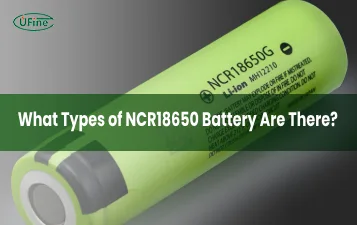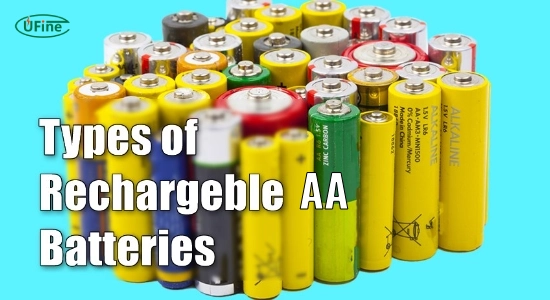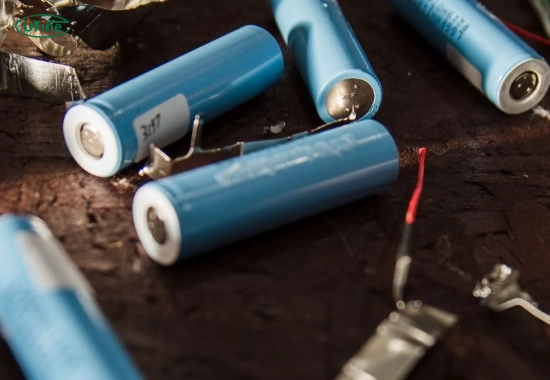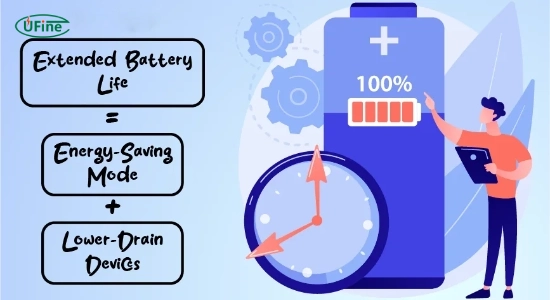How long do rechargeable AA batteries last? This common question has a multi-layered answer. While most last 2-10 years with 500-2000 recharge cycles, the exact lifespan depends on battery chemistry, usage intensity, and maintenance practices. Whether you use them in digital cameras, game controllers, or TV remotes, understanding these key factors will help you maximize your investment. In this definitive guide, we’ll break down exactly how long different battery types last and provide actionable tips to extend their lifespan.
Part 1. Rechargeable AA battery types: NiMH vs lithium lifespan comparison
NiMH Batteries
- Lifespan: 2-5 years
- Recharge Cycles: 500-1000
- Best For: High-drain devices (digital cameras, gaming controllers)
- Pro Tip: Low-self-discharge (LSD) versions retain 70% charge after 1 year
Lithium Batteries
- Lifespan: 5-10+ years
- Recharge Cycles: 1000-2000+
- Best For: Low-drain devices (remotes, clocks) and emergency gear
- Pro Tip: Maintain charge 3x longer than NiMH when unused
Key Insight: The lifespan of rechargeable AA batteries depends primarily on their chemistry. Lithium batteries typically outlast NiMH by 2-3x in both years and recharge cycles.
Part 2. Factors influencing the lifespan of rechargeable AA batteries
The lifespan of rechargeable AA batteries can vary significantly based on several factors:
- Quality of the Battery: Higher-quality brands like Eneloop or Energizer last longer than generic options. Investing in reputable brands can save you money in the long run, as they often provide better performance and longevity.
- Usage Patterns: The frequency and type of use play a significant role. High-drain devices like digital cameras may deplete batteries faster than low-drain devices like remote controls or wall clocks. Understanding your device use can help you choose the right battery type.
- Charging Practices: Proper charging techniques can enhance battery life. Overcharging or using incompatible chargers can damage batteries and reduce their overall lifespan. Always follow manufacturer guidelines for charging.
- Storage Conditions: Storing batteries in extreme temperatures can negatively impact their lifespan. Store them in a cool, dry place away from direct sunlight. Keeping them at room temperature helps maintain their performance.
Part 3. How long do rechargeable AA batteries last? The definitive answer
| Battery Type | Average Years | Recharge Cycles | Real-World Example |
|---|---|---|---|
| Standard NiMH | 2-3 years | 500 cycles | Camera batteries used weekly |
| Premium NiMH (Eneloop Pro) | 5 years | 1000 cycles | Daily gaming controllers |
| Lithium Rechargeable | 7-10+ years | 2000 cycles | Emergency flashlight batteries |
Lifespan Calculation Example:
For NiMH batteries charged once per week:
- 500 cycles ÷ 52 weeks/year = 9.6 years of use
Note: Actual lifespan may be shorter due to capacity degradation
Part 4. How many times can you recharge them?
The number of recharge cycles varies by chemistry:
- NiMH Batteries: Typically last for about 500 to 1000 charge cycles under normal conditions. Charging your NiMH battery once a week could last 10 to 20 years before needing replacement.
- Lithium Batteries: Due to their superior technology and lower self-discharge rate, lithium batteries can last over 1000 cycles. They are ideal for users who want long-lasting power without frequent replacements.
This means that with proper care, you could use your rechargeable AA batteries for several years before needing replacements.
Part 5. 5 Expert tips: How to maximize rechargeable battery lifespan
-
Use Smart Chargers
- Choose chargers with automatic shutoff to prevent overcharging.
- Overcharging can reduce battery life by up to 40%.
-
Avoid Deep Discharges
- Recharge batteries when they drop to 20–30% capacity.
- Fully discharging batteries puts stress on the internal chemistry.
-
Implement Seasonal Charging
- Charge stored batteries at least once every 3 months.
- This prevents deep discharge damage during long-term storage.
-
Rotate Battery Sets
- Label batteries as Set A, B, C, etc., to track usage.
- Rotate usage evenly to avoid overusing one set.
-
Control Temperature Exposure
- Store batteries between 15–25°C (59–77°F).
- High heat speeds up capacity loss and chemical aging.
Part 6. Common misconceptions about rechargeable batteries
Many misconceptions surround rechargeable AA batteries:
- They Don’t Last as Long as Alkaline Batteries: While it’s true that alkaline batteries have a higher initial voltage (1.5V), rechargeable NiMH batteries provide consistent power over time, especially in high-drain devices where they excel.
- They Suffer from Memory Effect: This was a common issue with older NiCd batteries but is largely irrelevant for modern NiMH and lithium technologies. Most users do not need to worry about memory effects impacting performance.
Part 7. Environmental impact of rechargeable batteries
Rechargeable AA batteries are generally more environmentally friendly than disposable ones:
- Reduced Waste: Users can reuse them hundreds or thousands of times, reducing waste compared to single-use alkaline batteries. This makes them a more sustainable choice for consumers concerned about waste management.
- Recyclability: Most rechargeable batteries can be recycled at designated facilities, minimizing environmental impact. Proper disposal helps prevent harmful chemicals from entering landfills.
Part 8. Signs your rechargeable AA batteries need replacement
Knowing when to replace your rechargeable AA batteries is essential for maintaining device performance:
- Reduced Capacity: If your devices are not operating as long as they used to on a single charge, it may be time for new batteries. A significant drop in performance is often an indicator that replacement is necessary.
- Physical Damage: If you notice any swelling or leakage, replace the battery immediately to avoid potential hazards or damage to your devices.
Part 9. FAQs about rechargeable AA batteries lifespan
How long do rechargeable AA batteries last?
Rechargeable AA batteries typically last depending on type and usage:
- NiMH batteries: 2–5 years or 500–1000 charge cycles
- Lithium batteries: 5–10+ years or 1000–2000 charge cycles
Heavy use in digital cameras may reduce lifespan to 2–3 years, while light use in remotes can extend it up to 10 years.
Can I use rechargeable AA batteries in any device?
Most devices accept rechargeable AA batteries, but keep the following in mind:
- High-drain devices: NiMH works well in digital cameras and flash units
- Low-drain devices: Lithium batteries last longer in remotes and clocks
- Voltage-sensitive devices: Some electronics may require 1.5V instead of 1.2V
Do I need a special charger for rechargeable AA batteries?
Yes, using the right charger improves battery lifespan and safety:
- NiMH batteries: Require smart chargers designed for NiMH chemistry
- Lithium batteries: Need lithium-ion compatible chargers
- Auto-shutoff: Prevents overcharging and extends battery life by up to 30%
What should I do if my rechargeable battery won’t hold a charge?
Try the following steps to revive or diagnose the battery:
- Recovery mode: Use a charger with a “refresh” or “recondition” function
- Check terminals: Clean battery and device contacts with isopropyl alcohol
- Test the battery: Use a battery analyzer to check remaining capacity
- Replace if needed: Discard if capacity is under 80% or the battery is swollen
Can I mix different brands of rechargeable AA batteries?
It’s not recommended to mix brands or models. Doing so may lead to:
- Uneven discharge: Weaker cells drain faster, causing imbalance
- Reduced performance: Capacity mismatch shortens lifespan
- Safety issues: Risk of leakage or overheating in some devices
Always use batteries from the same brand, type, and purchase batch together.
Do rechargeable AA batteries last longer than alkaline?
Yes, over their full usable life, rechargeable batteries outperform alkalines:
- Single-use: Alkalines may last longer per use in low-drain devices
- Total output: Rechargeables can deliver 50 times more energy overall
- Cost savings: One rechargeable battery can replace 100+ alkalines
Related Tags:
More Articles

Understanding the Types of NCR18650 Batteries
Explore NCR18650 battery types in-depth. Compare models like B, GA, PF, and BD, and learn their chemistry, specs, uses, and safety features.
Curved Battery Pack vs. Flat Battery Pack: A Comprehensive Comparison for Flexible Electronics
Curved battery packs vs flat: compare flexibility, use cases, and performance to choose the right power source for modern electronic devices.
Where to Buy 3.7 V Lithium Ion Battery 850mAh Nearby?
Where to buy a 3.7 V lithium-ion battery 850mAh nearby? Learn specs, how to choose the right one, and where to buy it fast from nearby or direct from makers.
CR123A 3.0 V Lithium Battery vs 16340 Battery: Difference explained
CR123A and 16340 batteries look alike but differ in voltage, safety, and use. Learn the key differences to choose the right one for your device.
NCR18650B Battery Explained: Uses, Specs, Lifespan
Discover everything about the NCR18650B battery, including specs, types, lifespan, applications, and tips to spot fakes before you buy.






